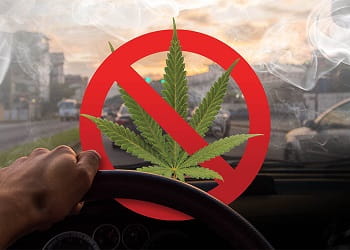Released on August 30, 2018

Consequences for impaired driving are getting even tougher in Saskatchewan as of Sept. 1, including stronger penalties for drug-impaired drivers and for impaired drivers who transport children.
The Traffic Safety (Miscellaneous) Amendment Act 2017 and The Miscellaneous Vehicle and Driving Statutes (Cannabis Legislation) Amendment Act, 2017 were both passed in the Spring sitting of the Legislature and come into effect Sept. 1.
“It’s never OK to drive impaired, whether it’s by drugs or alcohol,” Minister responsible for Saskatchewan Government Insurance (SGI) Joe Hargrave said. “This new legislation reflects the seriousness of this offence, with more severe punishments for drug-impaired drivers, and those who make the bad decision to drive with children in the vehicle.”
As of Sept. 1, zero tolerance for drug impairment will apply to all drivers. Zero tolerance means that drivers should not get behind the wheel with any level of impairing drugs in their system detectable by a federally-approved screening device, or a standardized field sobriety test. The province has also updated legislation and regulations so that tough administrative penalties that impaired drivers in Saskatchewan faced under existing legislation will also apply to anyone charged under three new federal drug-impaired driving laws (http://www.justice.gc.ca/eng/cj-jp/sidl-rlcfa/index.html).
There will also be longer vehicle seizures for impaired drivers with passengers under 16 years of age in the vehicle. In addition, experienced drivers who are impaired and transporting passengers under 16 will face longer roadside licence suspensions.
Penalties include:
Drug-Impaired Driving
- Zero tolerance for all drivers
- Immediate licence suspension
- Vehicle seized for up to 60 days
- Licence suspension for up to 5 years if convicted
Impaired Drivers with Passengers Under 16
- Vehicle seized for up to 60 days
- Licence suspended for up to 120 days
- Licence suspension up to 18 months for new drivers
Police can tell if you’re driving while high (https://www.sgi.sk.ca/news?title=think-a-police-officer-can-t-tell-if-you-re-driving-stoned--think-again-). If they suspect that a driver is impaired by a drug or alcohol (or a combination of both), they can demand that the driver take a standardized field sobriety test or use a roadside screening device. If the driver fails the field sobriety test or registers a failure on the roadside screening device, they can have their vehicle seized and licence suspended for at least three days. If the officer has reasonable grounds to believe that a driver is impaired by a drug or alcohol they can demand that the driver submit to an evaluation conducted by a Drug Recognition Evaluator (DRE) or a breath test at the police station.
If a driver subsequently fails a DRE, or exceeds .08 blood alcohol concentration, that triggers Criminal Code charges, which results in a minimum 30-day vehicle seizure, an indefinite licence suspension until the charges are dealt with, and – upon conviction – potential fines, jail time, ignition interlock requirements and driving prohibitions.
It doesn’t matter if a drug is legal or not. If it impairs your ability to drive safely, don’t get behind the wheel.
Prescription and over-the-counter drugs can also make you impaired, and combining drugs with alcohol increases impairment.
For more information on the consequences of impaired driving, visit SGI’s Drugs and alcohol page (https://www.sgi.sk.ca/drugs-alcohol).
-30-
For more information, contact:

